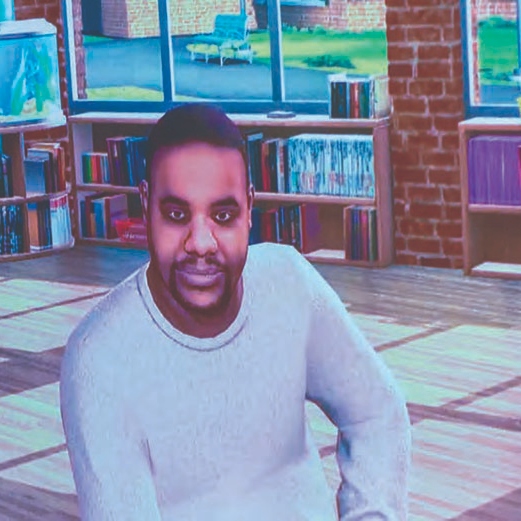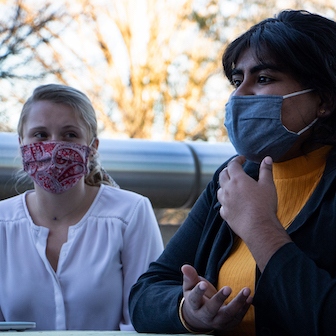Science vs. Pseudoscience
by Colleen Blaine
Though many people claim that salt lamps clean the air in homes through natural ionization, this contention is not supported by scientific evidence. From Twitter to the popular celebrity news website TMZ, the Internet affects the way people see, understand and believe health claims. When modern media disseminates false information and treats conspiracy theories as truth, the result is a loss of critical thinking and distrust of science.
Led by Dr. Elliot Ennis in the Department of Chemistry, the Science and Pseudoscience in Popular Media Creative Inquiry project is working to discover the extent to which people believe claims put forth by Instagram influencers and companies trying to profit from remedy myths, bogus diet pills or unnecessary vitamin supplements.
Most of this team’s research is completed through surveys disseminated via social media. The survey questions the beliefs of participants on popular trends in health care and personal hygiene. This allows the team to gauge how widely certain claims are accepted as well as to determine which science concepts are the most misunderstood. Participants answer questions ranging from if charcoal toothpaste whitens your teeth to if spicy foods cause stomach ulcers.
“It’s like science Myth Busters. If we can inform [people] of what’s true and what’s not, we can help them make better financial decisions and health decisions,” Katherine Hulsey, a senior food science and human nutrition major, said.
“My dream is to create a coffee table book,” Ennis said. While a book filled with discredited science myths is a long-term goal, Ennis’ team has created a blog that highlights health claims that are widely accepted, but are actually misconceptions. The hope is to increase overall science literacy and decrease conspiracies surrounding health education. “For me, the economic standpoint of all of these false claims, solely to make companies money, is a big deal,” Hulsey said.
In a society where hasty WedMD searches are the norm, it can be difficult to uncover the truth about proper health and wellness practices. Fortunately, this Creative Inquiry team is working to make the scientific facts related to these health claims accessible and easy to understand. “Science is approachable,” Ennis explained, “it is not some scary thing to be feared.” By becoming more aware of the claims that are promoted by Instagram influencers or discussed on popular talk shows, people will have the power to make informed decisions about their well-being.
CONTACT
Barbara J. Speziale
Director
(864)656-1550
bjspz@clemson.edu
Cora Allard-Keese
Assistant Director
(864)656-0721
callara@clemson.edu


